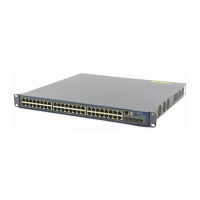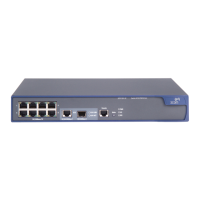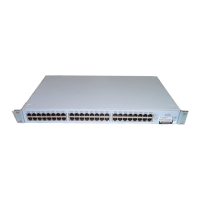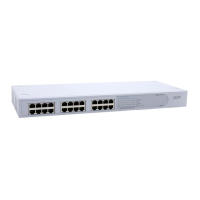492 CHAPTER 37: ROUTING POLICY CONFIGURATION
Defining an Extended
Community List
You can define multiple items for an extended community list that is identified by
number. During matching, the relation between items is logic OR, that is, if
routing information matches one of these items, it passes the extended
community list.
Follow these steps to define an extended community list:
Configuring a Routing
Policy
A routing policy is used to filter routing information according to some attributes,
and modify some attributes of the routing information that matches the routing
policy. Match criteria can be configured using filters above mentioned.
A routing policy can comprise multiple nodes, each node contains:
■ if-match clauses: Define the match criteria that routing information must
satisfy. The matching objects are some attributes of routing information.
■ apply clauses: Specify the actions performed after specified match criteria are
satisfied, concerning attribute settings for passed routing information.
Prerequisites Before configuring this task, you have completed:
■ Filtering list configuration
■ Routing protocol configuration
You also need to decide on:
■ Name of the routing policy, node sequence numbers
■ Match criteria
■ Attributes to be modified
Define a
community list
Define a basic
community list
ip community-list
basic-comm-list-num
{ deny | permit }
[ community-number-lis
t ] [ internet |
no-advertise |
no-export |
no-export-subconfed
] *
Required to define
either;
Not defined by default
Define an advanced
community list
ip community-list
adv-comm-list-num
{ deny | permit }
regular-expression
To do… Use the command… Remarks
To do… Use the command… Remarks
Enter system view system-view -
Define an extended
community list
ip extcommunity-list
ext-comm-list-number { deny
| permit } { rt
route-target }&<1-16>
Required
Not defined by default

